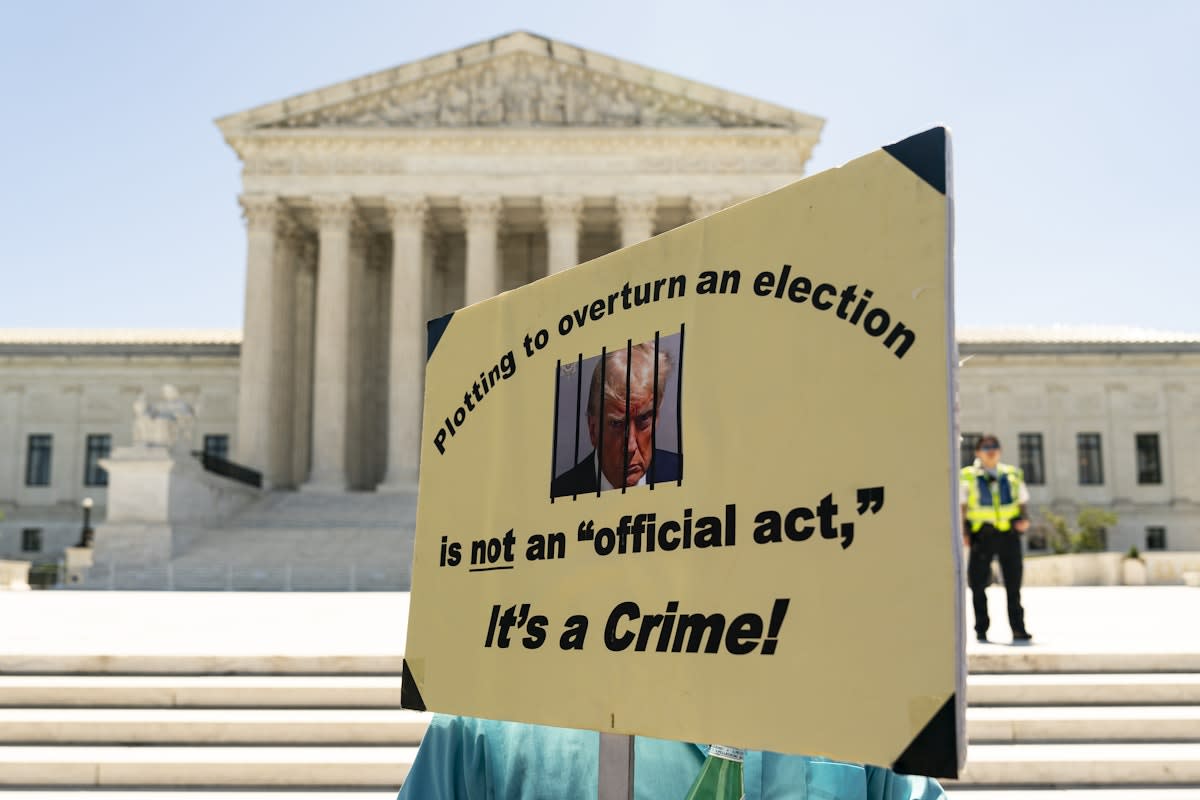Supreme Court’s Trump Immunity Ruling Decimates Jack Smith’s Case

- Oops!Something went wrong.Please try again later.
- Oops!Something went wrong.Please try again later.
- Oops!Something went wrong.Please try again later.
The U.S. Supreme Court’s ruling Monday that the president is entitled to presumptive immunity from all official acts has severely undermined the case against Donald Trump for seeking to overturn the results of the 2020 presidential election, making it even less likely he will face justice for his actions.
In his majority opinion granting sweeping protections to the president, Chief Justice John Roberts wrote that part of the Department of Justice’s indictment against the former president “alleges that Trump and his co-conspirators ‘attempted to enlist the Vice President to use his ceremonial role at the January 6 certification proceeding to fraudulently alter the election results.’”
“In particular, the indictment alleges several conversations in which Trump pressured the Vice President to reject States’ legitimate electoral votes or send them back to state legislatures for review,” Roberts continued.
“Whenever the President and Vice President discuss their official responsibilities, they engage in official conduct,” wrote Roberts, meaning that Trump can no longer be prosecuted for outright demanding that his former Vice President Mike Pence not certify the 2020 election results.
“Presiding over the January 6 certification proceeding at which Members of Congress count the electoral votes is a constitutional and statutory duty of the Vice President,” Roberts said. “The indictment’s allegations that Trump attempted to pressure the Vice President to take particular acts in connection with his role at the certification proceeding thus involve official conduct, and Trump is at least presumptively immune from prosecution for such conduct.”
The ruling established that the president may not be indicted on conduct that is immune to prosecution, specifically including conversations between the president and his allies, nor can those acts be considered when trying to prove guilt.
“Testimony or private records of the President or his advisers probing such conduct may not be admitted as evidence at trial,” the ruling stated—a surprising new precedent in the face of 1974’s United States v. Nixon, which required then-President Richard Nixon to deliver tapes of his conversations in the Oval Office to a district court, a ruling that ultimately paved the way for his resignation.
A major part of special counsel Jack Smith’s case against Trump hinges on the allegation that Trump knew he had lost the election but continued to urge his supporters to subvert it via unlawful means. This includes demanding Pence delay certifying the nation’s votes, which Trump’s lawyer John Lauro essentially admitted in August was illegal. But now, those conversations cannot be used as evidence in the case.
Monday’s decision has effectively gutted Trump’s January 6 trial, which would have been overseen by U.S. District Judge Tanya Chutkan. Trump has already started celebrating, and it’s clear it also would’ve made Nixon pretty happy.

